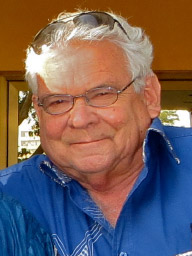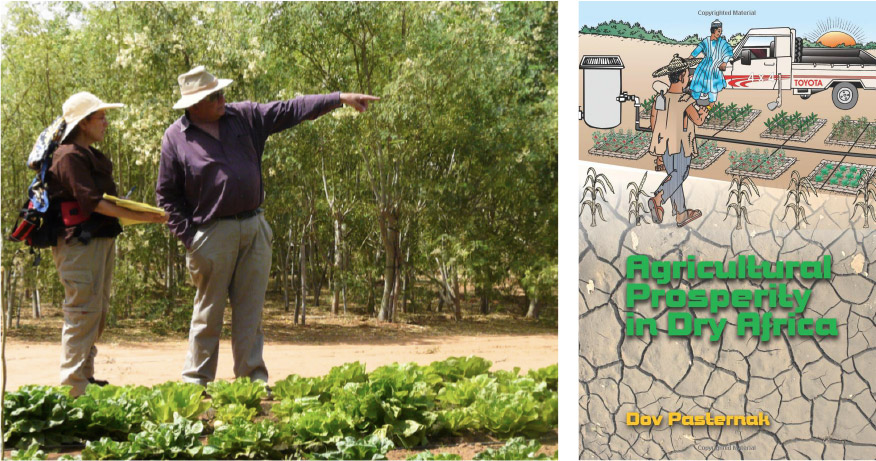 Professor Dov Pasternak (1940 – 2018) was a rare individual — a world class agricultural scientist with a savvy head for business, a flair for marketing and a humanitarian heart 5-times regulation size. Over a career spanning 5 decades, Dov played a major role in Israel’s miracle of making the desert bloom, consulted in 24 countries, wrote or co-authored hundreds of research papers, and spent the last 18 years of his life helping subsistence farmers in Africa escape the hardships of chronic poverty. For his work he was awarded a UNESCO World Chair in Desertification and a Lifetime Achievement Award from the Society for International Development.
Professor Dov Pasternak (1940 – 2018) was a rare individual — a world class agricultural scientist with a savvy head for business, a flair for marketing and a humanitarian heart 5-times regulation size. Over a career spanning 5 decades, Dov played a major role in Israel’s miracle of making the desert bloom, consulted in 24 countries, wrote or co-authored hundreds of research papers, and spent the last 18 years of his life helping subsistence farmers in Africa escape the hardships of chronic poverty. For his work he was awarded a UNESCO World Chair in Desertification and a Lifetime Achievement Award from the Society for International Development.
Dov spent the first 30 years of his career at Israel’s Ben Gurion University in the Negev as the head of BGU’s Institute for Agricultural and Applied Biology. Later in life Dov considered where Israel’s technology and experience could make the greatest contribution. His answer was the African Sahel and its millions of subsistence farmers trapped in chronic poverty.
Dov relocated to Africa (2001–2011) to become Chief Scientist for Crop and Technology Diversification at ICRISAT (International Crops Research Institute for the Semi-Arid Tropics) located in Niger. In that decade, Dov identified 100+ varieties of vegetables and fruit trees best suited to the soil and climate conditions of the Sahel. He developed techniques to grow crops on degraded land and simplified drip irrigation technology for use by poor smallholder farmers.

Dov literally wrote the book on Agricultural Prosperity in Dry Africa (available on Amazon in English and French editions). For decades, most agricultural assistance to developing countries focused on food security, ensuring sufficient supplies to avoid starvation. But that still left millions impoverished and malnourished. Dov believed passionately that agricultural development must focus on income security, giving farmers the means to earn a decent income through farming.
In the last 10 years of his life Dov focused on “Farmers of the Future,” a program drawing on all his years of experience. The concept was to organize women in local villages into cooperatives and teach them to farm for profit, earning up to twice the average income of Niger. The key is irrigation. An irrigated plot of land can generate up to 20 times the economic value of rainfed crops. But it requires a huge change: different mindset, different crops and different growing methods. The greater the change, the greater the need for intensive training and supervision.
Eliminate Poverty NOW, Pencils for Kids and ONG LIBO joined Dov to field test, optimize and expand his concept. That experience showed that women need at least 3 years of intensive training and supervision to master the change. But knowledgeable agricultural technicians to provide that teaching are scarce, especially in horticulture.
Rural agricultural development has become a top priority in Niger. To support the government’s efforts, the World Bank and Millennium Challenge Corporation have granted US$500 million for roads, dams, and local irrigation projects. This is great news. But infrastructure is not enough.
Niger needs a cadre of knowledgeable field technicians to teach farmers how to maximize income from these new opportunities. This is the mission of The Dov Center.
